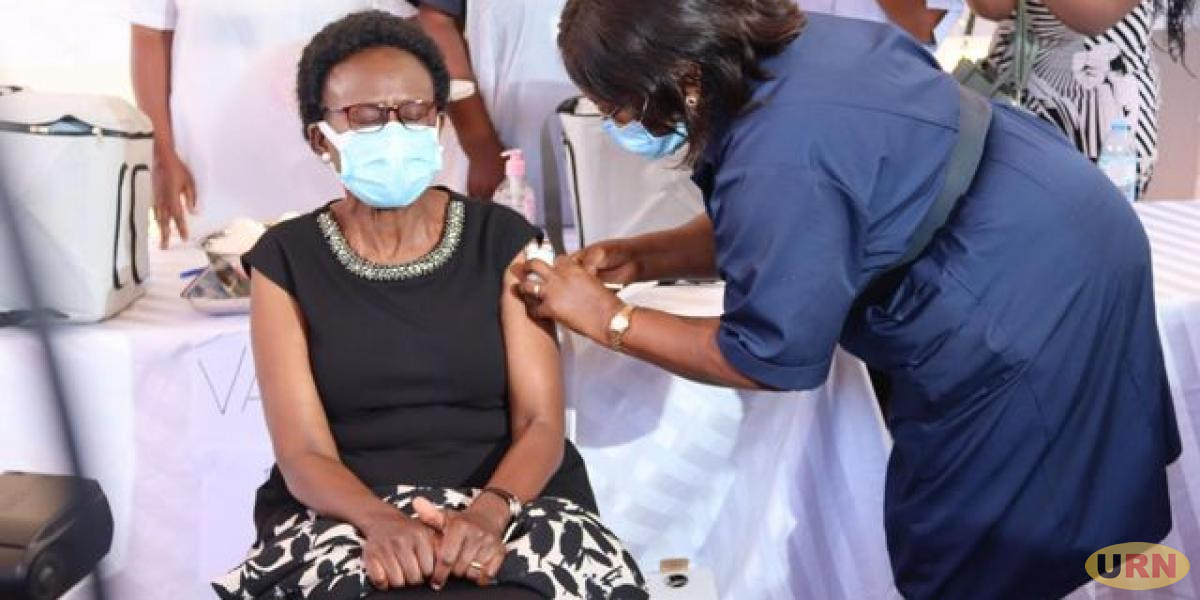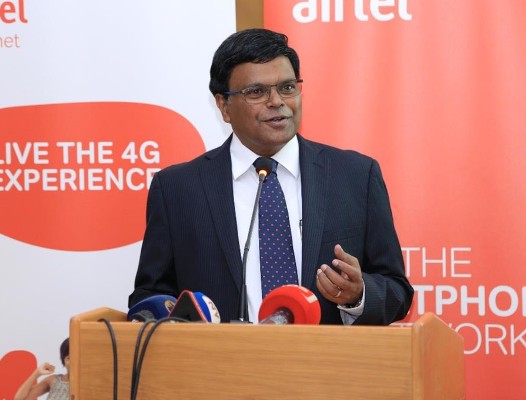Health Minister Dr. Jane Ruth Aceng was vaccinated on March 10th. Her second jab is due for early May when the eight weeks interval elapses.
On Wednesday, the Health Ministry gave the green light for the vaccination of Ugandans aged fifty years and above against COVID-19. However, as it opens up, it is emerging that the country may be running low on the vaccines imported early in March.
The country has so far received 964,000 doses of vaccines from the COVAX facility and the government of India. So far health ministry statistics indicate that 90, 196 people who include health workers, security operatives, teachers, members of parliament and the elderly of 70 years and above have received the vaccine.
Going by those so far vaccinated, there is fear that the country may not have adequate doses to cover the second round of those that have been vaccinated and the first round for the fifty-year olds as per the Ministry’s Plan. Three million elderly people are expected to get vaccinated.
The Head of the Uganda National Expanded Programme on Immunisation (UNEPI), Dr. Alfred Driwale says they would need seven million doses to be able to fully immunize this group.
When URN visited the vaccine center in Mulago, a source who declined to be named revealed that they had run out of doses on Monday and have since struggled to ensure vaccination continues.
Uganda is not alone in this crisis. The World Health Organisation (WHO) has already announced that the vaccine’s facility – COVAX from where Uganda accessed doses had dwindling stocks.
Speaking at the weekly press conference on Thursday the WHO Africa Regional Director, Dr. Matshidiso Moeti worried that many countries in Africa are struggling to sufficiently cover their high-risk groups as countries in the west are securing drugs for their entire populations.
Moeti said that even as 44 countries had received, numbers of vaccines per country, they are still below what they had planned to have reached by the end of March because of the few stocks. The concern now is that this could affect those who have already been vaccinated but they require a second jab for boosting their immunity against the coronavirus.
In Uganda, where vaccination officially started on March 10th, second jabs should start around May 05 when their eight weeks interval elapses as per the requirement for the AstraZeneca jab. Driwale is not sure yet when Uganda’s second consignment comes as he says they expect the drug between May and June.
Already, he said they resolved to use all the doses currently available in the country against the initial decision of vaccinating a few people who get their complete two doses. The second dose is supposed to be given eight to twelve weeks after the initial one.
While speaking at a meeting attended by vaccine researchers, Uganda Virus Research Institute Executive Director, Pontiano Kaleebu expressed fear that if more vaccines are not in the country in time, it could jeopardize what Uganda has so far attained in terms of those vaccinated. One of those is that those already vaccinated may not return for the booster dose.
However, with just a single dose of the AstraZeneca vaccine, Prof. Kaleebu, who was one of the researchers on the study that established the vaccine’s efficacy, says one will get 76% protection against mild disease. He says giving a single dose to a lot of people is better for public health than giving two doses to just a few.
-URN





